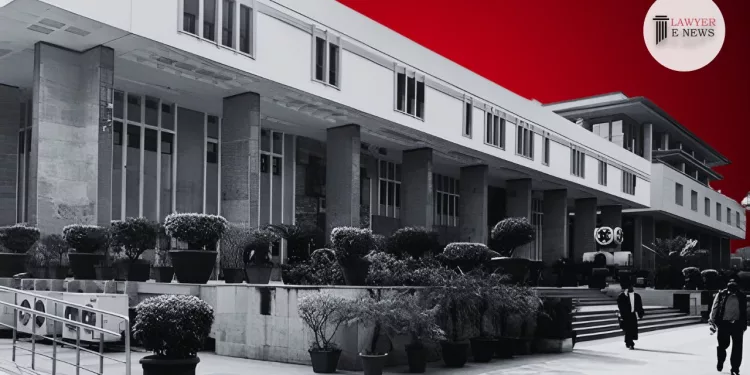For The Wrong Decision Taken By A Man Of Weak Or Frail Mentality, Another Person Cannot Be Blamed As Having Abetted His Committing Suicide: Delhi High Court Grants Bail In Abetment Of Suicide Case

In a significant ruling, the Delhi High Court today granted pre-arrest bail to two individuals, Aarushi Gupta and Rishab Nayyar, accused under Section 306 of the Indian Penal Code for allegedly abetting the suicide of a mutual acquaintance. Justice Amit Mahajan emphasized, “For the wrong decision taken by a man of weak or frail mentality, another person cannot be blamed as having abetted his committing suicide.”
Factual Background and Legal Arguments
The case, registered under FIR No. 294/2023 at Police Station Vivek Vihar, accused Gupta and Nayyar of instigating the deceased to end his life following a confrontation that allegedly escalated to threats and derogatory remarks. The prosecution relied heavily on a suicide note and the testimony of the deceased’s father, who claimed his son was driven to despair by the actions and words of the applicants.
The defense argued that the suicide note’s timeline was inconsistent with known facts, such as the timings of the deceased’s conversations and actions on the day preceding his death. They contended that there was a lack of direct evidence connecting the applicants to the act of suicide and highlighted past incidents where the deceased had exhibited suicidal tendencies unrelated to the applicants’ actions.
Detailed Court Assessment
Justice Mahajan meticulously analyzed the requisites for abetment to suicide, referring to precedents that clarified the need for active instigation or intentional aiding of the suicide act. The court noted, “Merely because a person’s name is mentioned in a suicide note, it does not automatically lead to the conclusion that they instigated the suicide.”
The judgment referenced several pieces of evidence, including WhatsApp chats and third-party testimonies, which suggested that the deceased had a history of emotional instability and had previously threatened self-harm during disputes.
Justice Mahajan also pointed to the Supreme Court’s observation in Geo Verghese v. The State of Rajasthan, asserting that not every act of pressure or conflict can be construed as abetment to suicide.
Decision Concluding that the evidence did not substantiate a direct link between the accused’s actions and the deceased’s suicide, the court granted bail to both applicants. The bail conditions included a surety of ₹50,000 each, restrictions on travel without notice, and mandates against tampering with evidence or contacting the complainant and witnesses.
Date of Decision: April 16, 2024
Aarushi Gupta vs. State GNCT of Delhi & Anr; Rishab Nayyar vs. State GNCT of Delhi & Anr






